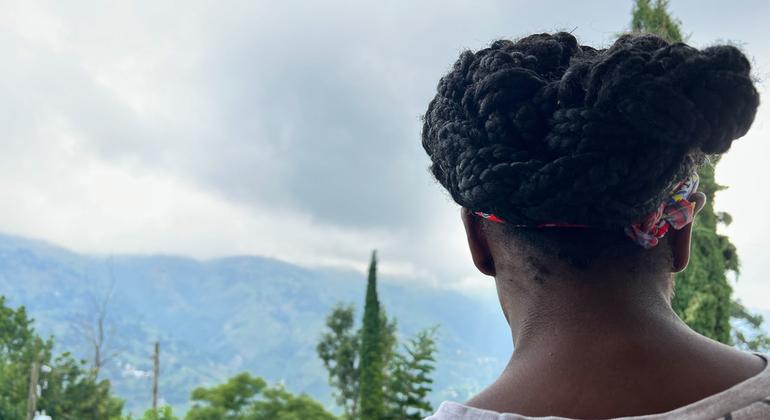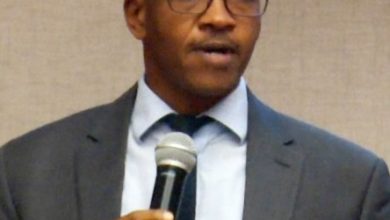Healing Haiti in the face of an increase in sexual violence

Claudine * overlooks a valley high above Port-au-Prince, the capital of Haiti. The lush vegetation, the cool air and the hanging clouds are a great contrast to the dusty, hot and humid backdrops of Petionville, which is located below the valley, where four years ago he was a sexual victim. sex which changes. your life
He said: “At that time, I was 16 years old and I was living with my brother and his husband. “I take care of their children, like they are mine.” Claudine should be in school but after her mother and grandmother she has no other choice but to become a domestic worker in her relative’s house. There, her brother-in-law raped her.
“I don’t know what to do but a friend reported the incident to the police, but nothing was done to find the man.”
Shelter from abuse
A year after her daughter was born, Claudine was taken to a shelter for abused children, many of whom cared for newborns. The shelter, where she has now lived for three years, is managed by Rapha House, an organization committed to ending the trafficking and sexual exploitation of children.
Nahomy Augustin is a project coordinator for an international NGO in Haiti. “Many of the young women here are victims of extreme poverty and insecurity, to the extent that the lack of basic services and opportunities they have access to means that they become vulnerable to abuse,” he said.
The shelter, which is located in a non-confrontational building, in a quiet area above Port-au-Prince, supports young women in recovering from their traumatic experiences. Nahomy Augustin says: “We take a comprehensive approach and provide a variety of services, including medical and psychological care, housing and legal counseling and family mediation.”
The aim is to help each young person return to their family within a year as long as they are safe, but many like Claudine stay a little longer. The shelter can currently accommodate 24 young women and their babies, but a new facility has been built which can provide care for up to 80 people.
The Spotlight Initiative, in partnership with the United Nations Children’s Fund, UNICEF, is supporting this and other shelters for women in Haiti.
Rape as a weapon
Geraldine Alferis is a gender-based violence expert at UNICEF. “Haiti, and especially the capital Port-au-Prince, is experiencing gang violence. “Thousands of girls and women are displaced, which makes them extremely vulnerable to exploitation,” he said.
In July, the United Nations said that rival groups in the Cite Soleil neighborhood of Port-au-Prince were “regularly using the rape of women and girls as a weapon of war.”
“Tang-rape is an especially horrific event and that’s why we work to make sure survivors get the help they need,” said Geraldine Alferis.
The Spotlight initiative in Haiti focuses on ending domestic violence, rape, domestic violence, sexual violence, physical and psychological violence, and other restrictions on the freedoms and rights of women and girls. It also aims to provide comprehensive care to women and girls who are survivors of violence.
During a visit to the refuge, the United Nations Resident Director in Haiti, Ulrika Richardson, said that “I am very happy to hear the stories of these young women and girls,” adding that “I also know that there is hope, and I know the importance of the works they do. they have access to.”
“I am proud of the Spotlight Initiative and the much-needed assistance it provides with our local partners, but what I heard on this visit is an important reminder of the urgency to address the root causes of sexual violence.”
At the shelter above Port-au-Prince, survivors like Claudine were able to study, making up for the school classes that many missed when they were young. They can also take practical classes to learn skills such as knitting or soap making, which can make them a low-cost, important first step towards building their independence.
Claudine said: “Going to school is very important. “If you work for a family like mine, it is not enough to get food and have a bed. We must give you the opportunity to study and make a life for yourself. ”







